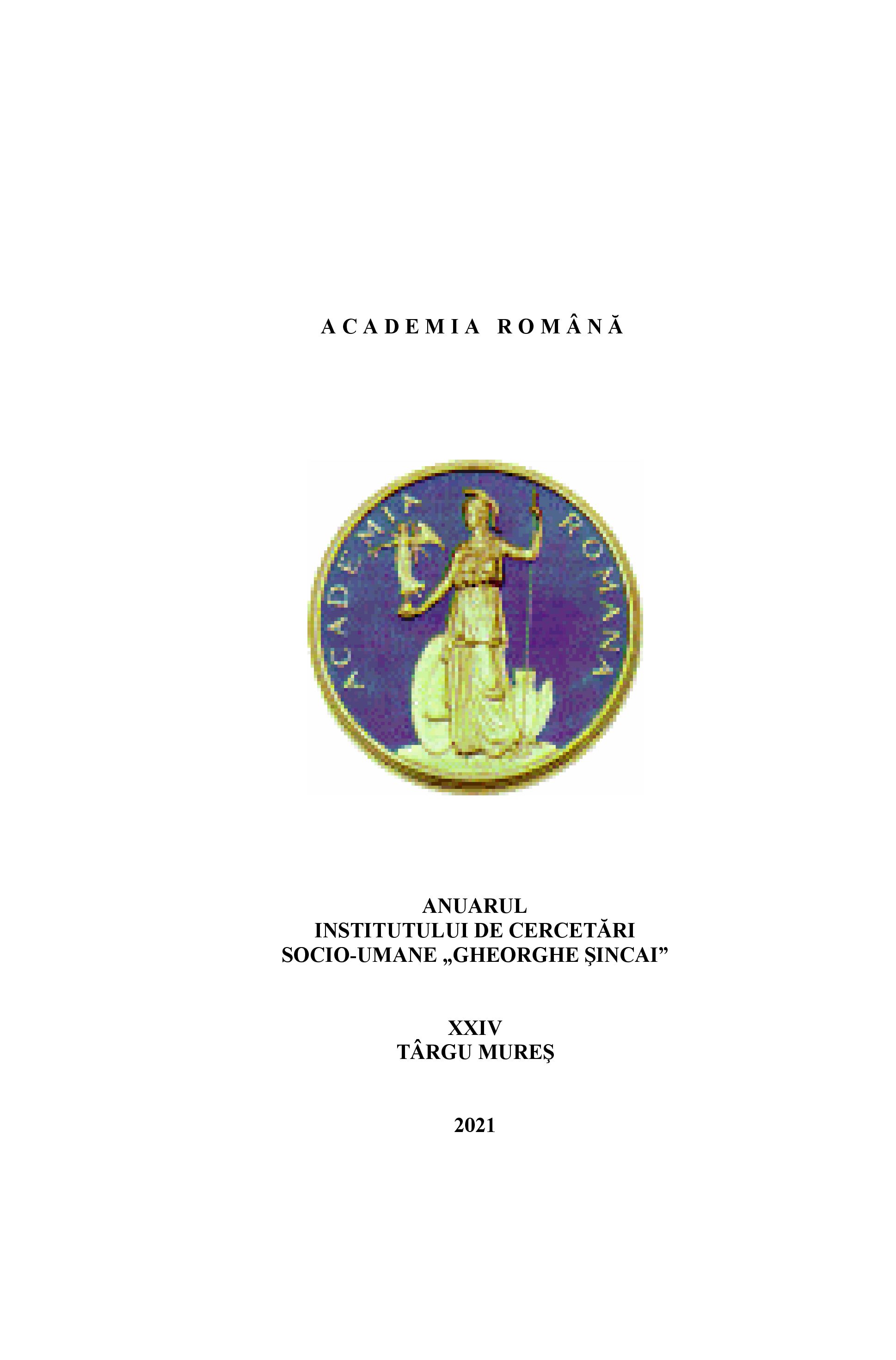„Diferențialele divine” – expresie a maximei eflorescențe a imaginarului filosofic blagian
"Divine differentials" - expression of the maximum eflorescence of the blagian philosophical imaginary
Author(s): Eugeniu NistorSubject(s): Metaphysics, Romanian Literature
Published by: Institutul de Cercetări Socio-Umane Gheorghe Şincai al Academiei Române
Keywords: divine differentials; the Great Anonymous; cosmological vision; entelechial theories; the principle of sufficient fit; transbiological background; Herbart's real;
Summary/Abstract: Lucian Blaga's fabulous imagination is easy to see from his youthful writings, but we also find it in his later confessions, beautifully handwritten in "The Chronicle and the Song of the Ages", where the philosopher acknowledges that the village world was a wonderful interference area". In "Divine Differentials" (1940, the first volume of the "Cosmological Trilogy"), under the rule of metaphysics and biblical mythology, but especially under the spectrum of the philosopher's unusual imaginary, the concept of the Great Anonymous is resumed, this time as a generator "of the world, endowed with unlimited powers that it "self-censors", reducing them to three phases: 1) the precosmic phase, 2) the direct genesis phase and 3) the indirect genesis phase. In the first phase he refrains more from what he could do and then it turns out that he is not in his favor. In the second phase, it generates the world through "divine differentials", i.e. through "infinitesimal fragments" of some "substances", different from the empirical ones - these being homogeneous, heterogeneous or specific - from which all the others will be produced. In the third phase, the genesis is indirect and involves the "integration and organization" of the initial differentials, followed by an "individualization" of them and even a kind of "competition" between individuals and their species, which is reminiscent of theories, on which Lucian Blaga harshly criticizes, being those of Darwin and Weisman. But almost all philosophers, from Plato to Herbart, are criticized here.
Journal: Anuarul Institutului de Cercetări Socio-Umane »Gheorghe Şincai« al Academiei Române
- Issue Year: 2021
- Issue No: 24
- Page Range: 331-357
- Page Count: 27
- Language: Romanian

